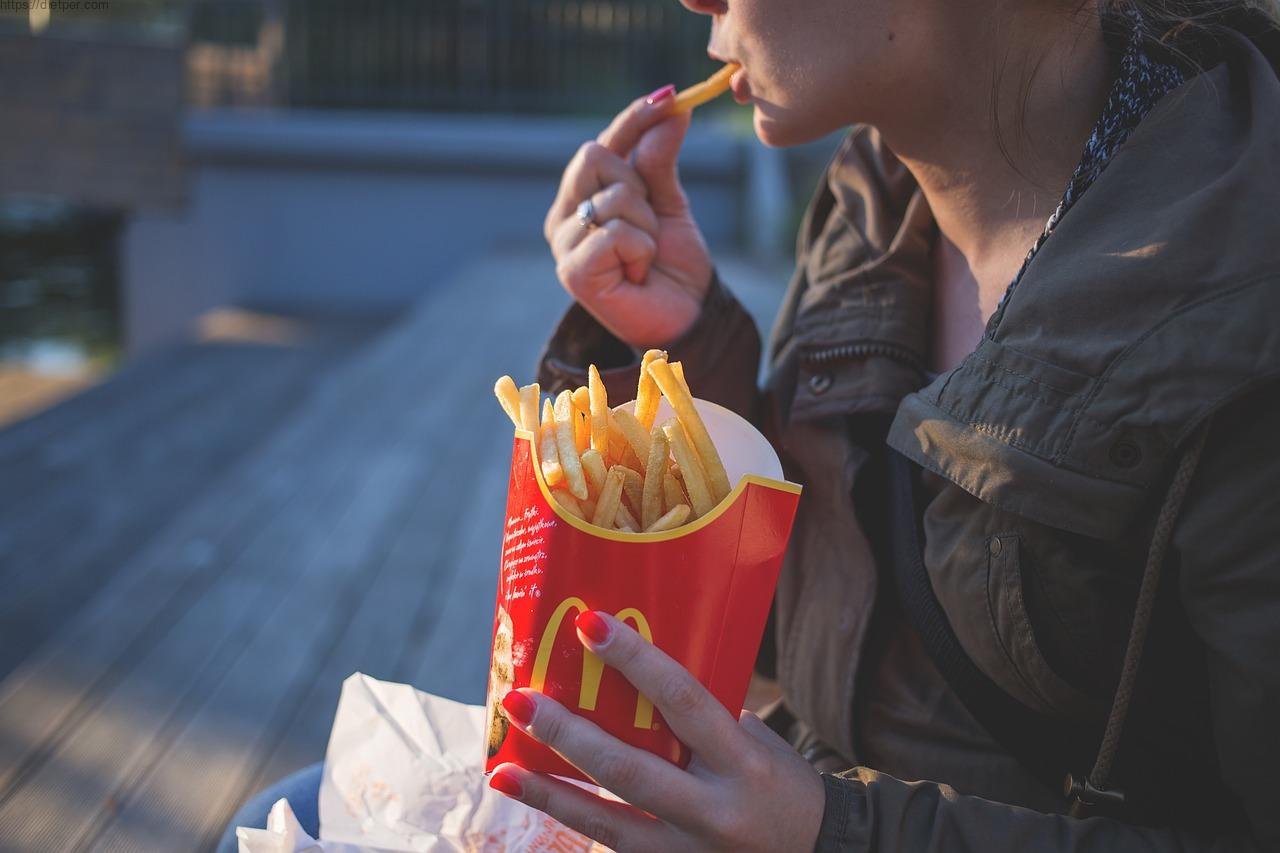17 things to avoid during fasting and praying in Spiritual
17 Practices to Refrain from During Spiritual Fasting and Prayer

Things to avoid during fasting and praying : Fasting and praying are deeply spiritual practices that require a heightened level of mindfulness and discipline. Avoiding distractions, negative influences, and unhealthy behaviors during these practices is essential to maintain a focused and spiritually meaningful experience. By adhering to the principles of things to avoid during fasting and praying, individuals can create a conducive environment for deepening their connection with the divine, nurturing self-reflection, and preserving physical and mental well-being. These practices ensure that the sacred purpose and transformative potential of fasting and praying are fully realized.
Why do you need to things to avoid during fasting and praying?
Things to avoid during fasting and praying are essential to maintain a focused and spiritually meaningful experience. These practices require a heightened level of mindfulness and spiritual discipline, and by steering clear of distractions, negative influences, unhealthy behaviour, and excessive indulgences, individuals can create a conducive environment for deepening their connection with the divine, fostering self-reflection, and nurturing physical and mental well-being. It ensures that the sacred purpose and transformative potential of fasting and praying are fully realized.
The importance of fasting and praying
The integration of fasting and praying bestows numerous benefits, such as strengthening faith, instilling self-discipline, nurturing gratitude, fostering empathy, and reigniting one’s sense of purpose. However, embarking on this spiritual journey demands a mindful and respectful approach. It entails comprehending the profound purpose underlying these practices and consciously avoiding actions that may dilute their essence. In the subsequent section, we will explore common pitfalls and things to avoid during fasting and praying to ensure a meaningful and transformative spiritual experience.
17 things to avoid during fasting and praying
During fasting and praying, it’s important to maintain a focused and spiritually meaningful experience by avoiding distractions and behaviours that may detract from your goals. Here are 17 things to avoid during fasting and praying:
Unhealthy Food Choices
When fasting and praying, it’s crucial to be mindful of the foods you consume, both before and after your fasting period. Processed foods, sugary snacks, and heavy, greasy meals should be avoided. These items are often high in empty calories, saturated fats, and sugars.
Consuming them before fasting can lead to a rapid spike in blood sugar levels, followed by a crash, leaving you feeling tired and irritable. These foods can disrupt your fast by causing hunger pangs and cravings, making it challenging to maintain focus and inner peace during your spiritual practice.
Opting for fresh fruits, vegetables, whole grains, and lean proteins provides your body with sustained energy and essential nutrients, supporting your fasting journey and enhancing your spiritual clarity.
Overeating
Overindulging in food, whether it’s before or after fasting, is a common mistake that can have adverse effects on your body and spiritual experience. Before fasting, indulging in excessive quantities of food can shock your system, leading to discomfort, bloating, and digestive issues when you begin your fast.
Overeating after fasting can also overwhelm your digestive system, causing discomfort and potentially negating the benefits of your fast. It’s essential to break your fast with small, easily digestible meals to gently reintroduce food to your body and prevent discomfort. This practice supports your spiritual goals by keeping you physically comfortable and focused on your spiritual practice rather than on digestive discomfort.
Moreover, this aligns with the principle of things to avoid during fasting and praying, ensuring that your fasting and prayer experience remains meaningful and conducive to spiritual growth.
Popular Articles :
- A Spiritual Feast: Foods to Eat While Fasting and Praying
- The Vertical Diet: A Breakdown of Its Benefits and Drawbacks
- Delicious Low FODMAP Fast Food: Fruit, Nut, Snack, and Vegetable Recipes
Excessive Caffeine
Caffeine is a common stimulant found in coffee, tea, and many soft drinks. During fasting and prayer, consuming excessive caffeine can have several negative effects. Caffeine is a diuretic, meaning it increases urine production, which can lead to dehydration.
Dehydration can cause physical discomfort and may disrupt your focus and inner peace during prayer and reflection. Additionally, too much caffeine can lead to restlessness, jitteriness, and disrupted sleep patterns, all of which can hinder your spiritual practice.
It’s advisable to limit caffeine intake or opt for decaffeinated beverages during fasting to maintain your physical and mental well-being and enhance your spiritual experience. This aligns with the principle of things to avoid during fasting and praying, ensuring a harmonious and meaningful spiritual journey.
Alcohol
Alcohol should be avoided during fasting and prayer for several reasons. Firstly, alcohol impairs judgment and inhibits decision-making abilities, which can interfere with the clarity and purpose of your spiritual practice. Secondly, alcohol is dehydrating, and fasting already places stress on your body’s water reserves.
Consuming alcohol can exacerbate dehydration, leading to physical discomfort and potential health risks. Additionally, alcohol can alter your mental state and hinder your ability to focus on prayer and reflection.
To fully engage in your spiritual journey, it’s best to abstain from alcohol during fasting periods and maintain a clear mind and a well-hydrated body. This aligns with the principle of things to avoid during fasting and praying, ensuring a spiritually meaningful and physically comfortable experience.
Negative Influences
During fasting and prayer, it’s crucial to be mindful of the people you surround yourself with. Negative influences can hinder your spiritual progress and distract you from your goals. These individuals may not share your spiritual beliefs or may discourage your fasting and prayer practices.
They might question your commitment or mock your efforts. Being around such negativity can undermine your resolve and make it challenging to maintain focus and inner peace.
To protect the sanctity of your spiritual journey, it’s advisable to distance yourself from these negative influences and seek the company of supportive, like-minded individuals who understand and respect your spiritual aspirations.
Excessive Screen Time
In today’s digital age, excessive screen time can be a significant obstacle to meaningful fasting and prayer. Spending too much time on social media, watching television, or engaging with other screens can divert your attention from prayer and reflection.
These distractions can disrupt your spiritual practice by constantly bombarding you with external stimuli and information. To maintain focus and inner peace, it’s essential to set boundaries on screen time during fasting and prayer. Allocate specific periods for these activities, and prioritize your spiritual practice as the central focus of your day.
Excessive Workload
Overwhelming yourself with work or responsibilities during fasting and prayer can have detrimental effects on both your physical and spiritual well-being. An excessive workload can leave you drained and mentally exhausted, making it challenging to engage in meaningful prayer and reflection.
Fasting requires energy, and an overwhelming workload can deplete your physical and mental resources, leaving little room for spiritual growth. To avoid this mistake, it’s important to strike a balance between your professional or personal responsibilities and your spiritual practice.
Prioritize self-care and allocate sufficient time for fasting, prayer, and reflection to ensure a fulfilling and transformative experience. This aligns with the principle of things to avoid during fasting and praying, ensuring a harmonious and meaningful spiritual journey.
Gossip and Negativity
Engaging in negative conversations or gossip can be particularly harmful to your spiritual growth during fasting and prayer. These actions perpetuate negativity and discord, creating barriers to inner peace and clarity. Gossip can distract your mind and lead to negative thoughts, which are counterproductive to your spiritual goals.
To create a conducive environment for your spiritual journey, it’s essential to avoid gossip and steer conversations toward positive, uplifting topics. Cultivate a mindset of compassion and understanding, focusing on personal growth and spiritual development rather than engaging in harmful talk.
Excessive Physical Activity
While moderate physical activity can have health benefits and enhance your overall well-being, excessive exercise during fasting and prayer can be counterproductive. Intense physical exertion can lead to exhaustion and physical fatigue, making it difficult to maintain your spiritual focus and inner peace.
Instead of overexerting yourself, consider incorporating light exercise, such as gentle yoga or walking, into your routine to support your physical health without distracting from your spiritual practice. Strike a balance that allows you to nourish both your body and your soul during this sacred time.
Lying or Dishonesty
Honesty and integrity are essential aspects of a meaningful spiritual practice during fasting and prayer. Being truthful in your interactions with others and in your thoughts is not only a moral imperative but also a way to maintain the purity of your intentions.
Dishonesty can lead to feelings of guilt and inner conflict, which can hinder your ability to connect with the divine and experience true inner peace. Practising honesty and integrity fosters a clear conscience and a sense of authenticity, enabling you to engage in prayer and reflection with sincerity and transparency.
Excessive Sleeping
While rest is important for overall well-being, excessive sleeping during fasting and prayer can be counterproductive. Oversleeping can consume valuable time that could be dedicated to prayer, reflection, and spiritual growth. It can make you feel sluggish and lethargic, diminishing your focus and inner clarity.
To avoid this, it’s advisable to maintain a balanced sleep schedule that allows for adequate rest without excessive indulgence. Prioritize waking hours for your spiritual practice, ensuring that you make the most of this sacred time.
Materialism
Fasting and prayer are often centred around detaching from worldly desires and material possessions. Obsessing over materialism or worldly possessions can hinder your spiritual journey by diverting your focus away from spiritual growth and inner peace.
Materialism can lead to greed, envy, and discontent, which are contrary to the principles of humility, gratitude, and contentment often associated with spiritual practice.
To stay aligned with your spiritual goals, it’s essential to practice detachment from material desires and find fulfilment in your spiritual journey rather than material possessions. This practice is in harmony with the principle of things to avoid during fasting and praying, ensuring a spiritually enriching experience that transcends materialism.
Excessive Socializing
Social engagements can be enriching, but during fasting and prayer, it’s crucial to strike a balance. Excessive socializing can divert your focus from your spiritual practice and diminish the time you have for prayer and reflection. It can lead to external distractions and conversations that are unrelated to your spiritual goals.
To maintain the sanctity of your spiritual journey, limit social engagements to those that support your fasting and prayer routine. Surround yourself with individuals who respect and understand your spiritual aspirations.
Judgment and Criticism
Fasting and prayer often aim to foster qualities of compassion, forgiveness, and self-reflection. Engaging in judgment or criticism, whether of others or oneself, can hinder the development of these qualities. It creates negative energy and can lead to feelings of resentment, hostility, and self-doubt.
To create a conducive environment for your spiritual journey, refrain from passing judgment or criticizing others and practice self-compassion. Cultivate an attitude of understanding and forgiveness, allowing for personal growth and a deeper connection with the divine.
Neglecting Self-Care
Self-care is crucial during fasting and prayer because it ensures that your physical and mental well-being remains intact throughout this spiritually demanding period. Neglecting self-care can lead to physical discomfort, mental exhaustion, and diminished spiritual focus.
To avoid this, it’s important to pay attention to your body’s needs. Make sure you get adequate rest, as fasting can sometimes lead to fatigue. Prioritize proper hydration to prevent dehydration, and maintain a balanced diet during non-fasting hours to provide your body with essential nutrients. Engage in relaxation techniques such as meditation or deep breathing to manage stress.
Neglecting self-care can hinder your ability to fully immerse yourself in prayer and reflection, so it’s essential to maintain a holistic approach to your well-being. This aligns with the principle of things to avoid during fasting and praying, ensuring a spiritually enriching and physically comfortable experience.
Multitasking
Fasting and prayer require focused attention and mindfulness. Multitasking, or attempting to juggle multiple tasks simultaneously, can dilute your presence and detract from the depth of your spiritual experience. When you multitask during prayer, reflection, or even eating, you risk not fully engaging with the present moment. This can lead to a superficial experience that lacks the depth and spiritual insight you seek.
Instead, it’s advisable to focus on one task at a time. When you pray, be fully present in your prayers; when you reflect, give your thoughts your undivided attention; and when you eat, savour your food mindfully.
Cultivating this level of mindfulness allows you to connect more deeply with your spiritual practice and experience a profound sense of inner peace and clarity.
Losing Patience
Fasting and prayer can indeed be challenging, both physically and mentally. It’s not uncommon to face moments of impatience or frustration during this journey. However, losing patience can disrupt the spiritual experience and hinder your progress. Impatience can lead to negative thoughts and emotions, which detract from the inner peace and clarity you aim to achieve.
To maintain a meaningful spiritual practice, it’s important to cultivate patience. Remind yourself of the purpose behind your fasting and prayer, and acknowledge that spiritual growth often involves moments of difficulty. Patience allows you to navigate these challenges with grace and resilience.
By staying patient, you can persevere through the tough times and ultimately find greater fulfilment in your spiritual journey. This aligns with the principle of things to avoid during fasting and praying, ensuring a spiritually enriching and emotionally balanced experience.
By avoiding these distractions and behaviour during fasting and praying, you can create a more focused and meaningful spiritual journey, deepening your connection with your faith or higher power. This aligns with the principle of things to avoid during fasting and praying, ensuring a spiritually enriching and distraction-free experience that allows you to fully embrace the transformative power of fasting and prayer.
Frequently Asked Questions – Things to avoid during fasting and praying.
What not to eat when fasting and praying?
Avoid processed foods, sugary snacks, and heavy, greasy meals during fasting and prayer.
What foods to avoid when fasting and praying?
It’s best to avoid unhealthy food choices like processed foods and sugary snacks to maintain a focused spiritual experience.
What things to avoid when fasting and praying in Christianity?
In Christianity, you should avoid distractions such as excessive screen time, negative influences, and unhealthy food choices during fasting and prayer.
How to eat when fasting and praying?
When fasting and praying, opt for wholesome, nutritious foods and avoid overeating or indulging in heavy meals.
What should I eat when fasting and praying?
Choose fresh fruits, vegetables, whole grains, and lean proteins to support your fasting and prayer experience.
What to do before fasting and praying?
Before fasting and praying, it’s important to set intentions, prepare your mind, and choose a conducive environment for your spiritual practice.
What not to do when fasting and praying?
Avoid behaviours like excessive screen time, overeating, and negative influences that may distract you from your spiritual goals.
How often to pray when fasting?
The frequency of prayer during fasting can vary, but it’s typically recommended to engage in regular prayer and reflection throughout the fasting period.
What should I do when fasting and praying?
During fasting and praying, focus on prayer, reflection, and maintaining a spiritual mindset to deepen your connection with the divine.
Things to avoid when fasting?
In fasting, it’s important to avoid unhealthy food choices, distractions, and behaviours that detract from your fasting goals.
Can you drink coffee while fasting and praying?
While it depends on personal preferences and beliefs, it’s generally advisable to limit caffeine intake during fasting and prayer to maintain focus and hydration.
How often should you fast and pray?
The frequency of fasting and prayer can vary among individuals and religious traditions. It’s essential to align your fasting and prayer routine with your spiritual goals and beliefs.
What to do when fasting and praying?
When fasting and praying, prioritize prayer, reflection, and maintaining a spiritual mindset to enhance your spiritual experience.
Things to avoid when fasting and praying in Islam?
In Islam, avoid distractions like excessive screen time, negative influences, and unhealthy food choices during fasting and prayer to maintain a focused spiritual practice.
Final Thought
In conclusion, fasting and praying are deeply personal and spiritually enriching practices that hold immense significance in various religious and spiritual traditions. To make the most of this sacred journey, it is essential to be mindful of what to avoid during fasting and praying. By steering clear of distractions such as things to avoid during fasting and praying, such as unhealthy food choices, excessive caffeine, negative influences, and excessive screen time, we can create a conducive environment for a meaningful spiritual experience.
Moreover, avoiding behaviours like overeating, excessive workload, gossip, and judgment allows us to maintain our physical and mental well-being, ensuring that we stay connected to our spiritual goals. Neglecting self-care, multitasking, and losing patience can dilute the depth of our spiritual experience, so it’s crucial to prioritize mindfulness and patience throughout the journey.
By being mindful of these things to avoid during fasting and praying, we can create a sacred space for introspection, self-reflection, and personal growth, ultimately strengthening our faith, instilling self-discipline, nurturing gratitude, and fostering a renewed sense of purpose. Fasting and praying, when approached with respect and intention, offer a profound opportunity for spiritual growth and a deeper connection with the divine.
Things to avoid when fasting and praying pdf
Disclaimer
This blog post aims to empower you to make informed and health-conscious food choices. Your well-being is of paramount importance, and it’s essential to prioritize your health before embarking on any restrictive diets. Therefore, if you have any concerns, it is highly advisable to seek guidance from a healthcare professional or registered dietitian before making dietary changes.











Thanks for sharing valuable information.